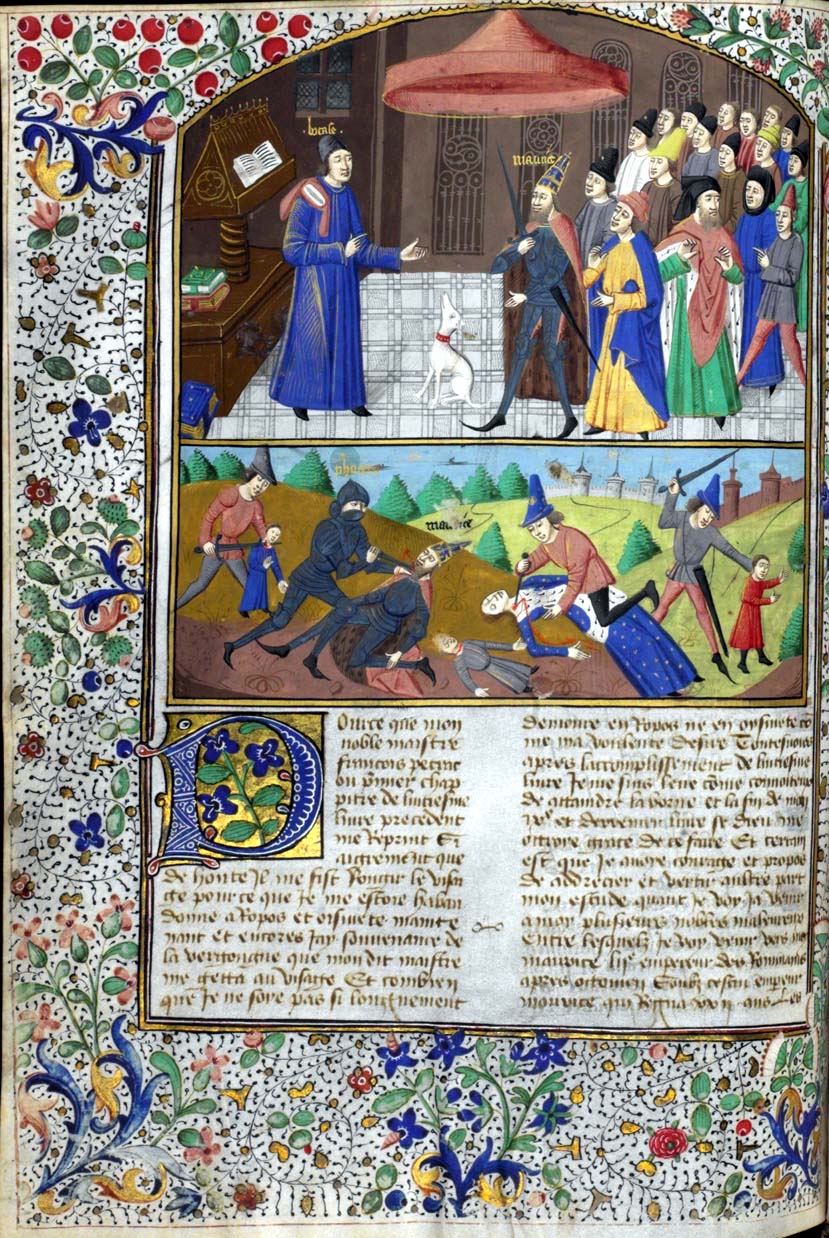De Casibus Tragedy
- De Casibus Tragedy
- De Casibus Tragedy Meaning
- De Casibus Tragedy Definition
- De Casibus Tragedy Definition
- 'Rethinking Absolutism: English de casibus Tragedy in the 1560s,' A Mirror for Magistrates in Context: Literature, History and Politics before the Age of Shakespeare, ed. Harriet Archer and Andrew Hadfield. Cambridge: Cambridge University Press, 2016.
- De Casibus Tragedy: Marlowe's 'Tamburlaine the Great'.
- Chaucer wrote tragedies of this sort himself, on the model of the narratives of Giovanni Boccaccio's (1313 – 1375) De casibus virorum illustrium (Boccaccio himself did not consider these stories to be tragedies) and later assigned them to the Monk in the Canterbury Tales. In the meantime, he wrote an extended tragedy, Troilus and Criseyde.
Manchester Digital Textbooks. Access anytime, anywhere. Now available in digital form for the first time, Manchester Digital Textbooks provide easy access for students.
Boccaccio (1313-1375) is regarded to be one of the most important and influential writers of the Middle Ages. Producing works of great literature in both Latin and the vernacular, his home was a centre for early Italian humanism.
De Casibus Tragedy
.jpg)
The De Casibus Virorum Illustrium was written in the late 1350s. Loosely translated into English as The Fall of Princes, it is a profoundly moral treatise on the vicissitudes of man's fortune. Influenced by a friendship with Petrarch (1304-1374), Boccaccio had turned to religion in his later years and his work became increasingly imbued with a sense of morality. Composed at a time when many Italian city-states were headed by dictatorial tyrants, its aim was to 'teach princes the virtues of wisdom and moderation, to point out to them the ruin wrought by egotism, pride and unbridled ambition'.1 With its overarching theme of life's mutability, it provides plentiful examples of the errors and excesses that kings and princes should avoid. Boccaccio produced a second, augmented version of the work about ten years after the first.

De Casibus Tragedy Meaning



The work is presented in the framework of a vision. As Boccaccio sits in his study, a succession of unfortunate figures from history and mythology pass before him. Roughly chronological, the text begins with Adam and Eve and their expulsion from Eden, and ends with King John of France who was taken prisoner by the English in Poitiers in 1356. Fortune herself appears before the author at the beginning of Book 6: she tells Boccaccio that his task is futile and then suggests the names of more miserable characters for him to write about; he is later visited by Petrarch who berates him for being idle and exhorts him to continue in writing the work.
De Casibus Tragedy Definition
Many of the stories recounted are derived from the Bible, the works of the Church Fathers, classical sources and Greek mythology. In particular, Boccaccio draws heavily on Livy and Ovid (particularly the Metamorphoses). Other anecdotes are taken from medieval Latin writers such as Valerius Maximus and Hyginus.
De Casibus Tragedy Definition
The way in which the narrative of the early English Reformations is written has been a vital subject for historiography both early modern and modern. This article looks at the ways in which literary texts in the period c. 1549–1613 attempted to write the history of the Reformation within nascent forms of narrative Tragedy (dialogue, verse history, drama). Focusing on an Edwardian dialogue, a Marian poem and Shakespeare's and Fletcher's Henry VIII, the article looks at how these works attempted to make historical sense out of an era characterized by sudden political and religious reversals and upheavals, processes which themselves blighted the fate of these texts and their authors. In Bernadino Ochino's Tragoedie (1549) the rise of the papacy and its fall in sixteenth-century England is formed into a complex proto-Miltonic providential narrative. In William Forrest's History of Griselda II (1558), the Reformation is constructed as a sharply gendered masculine transgression drawn on the template of Chaucer's Clerk's Tale. Finally, in Shakespeare's and Fletcher's Jacobean history play, a vision of profound ambivalence is produced out of the various claims of religious triumph and literary tragedy.